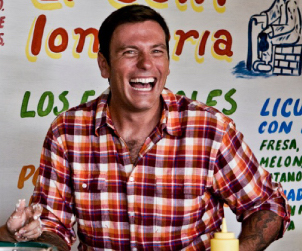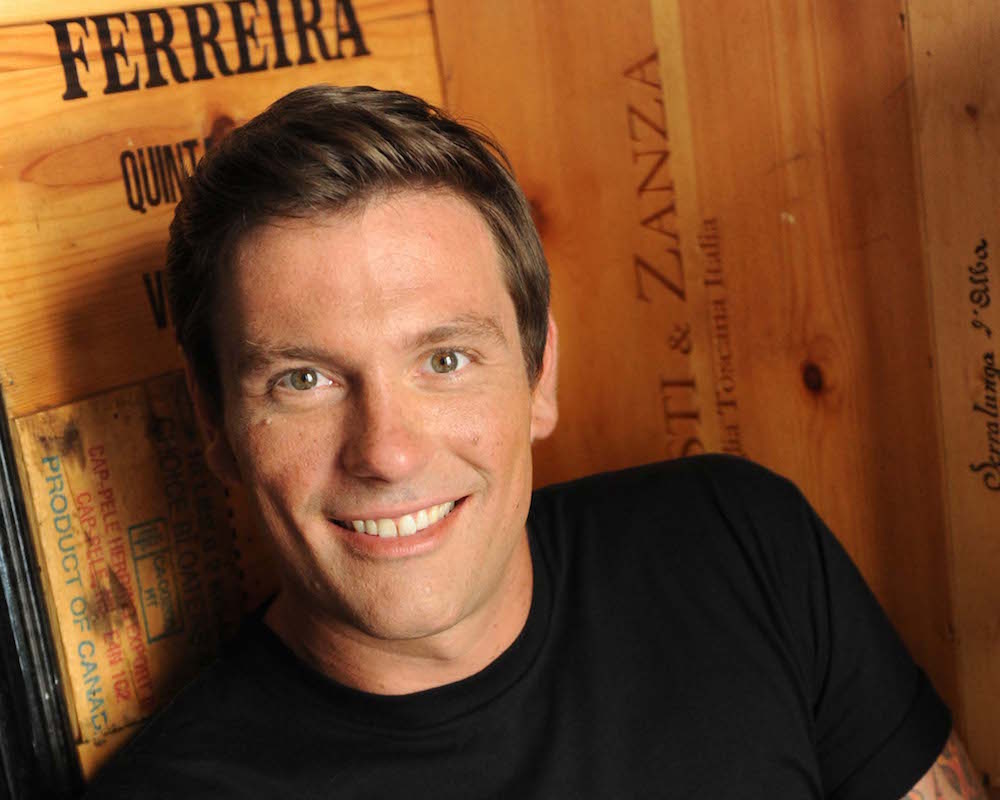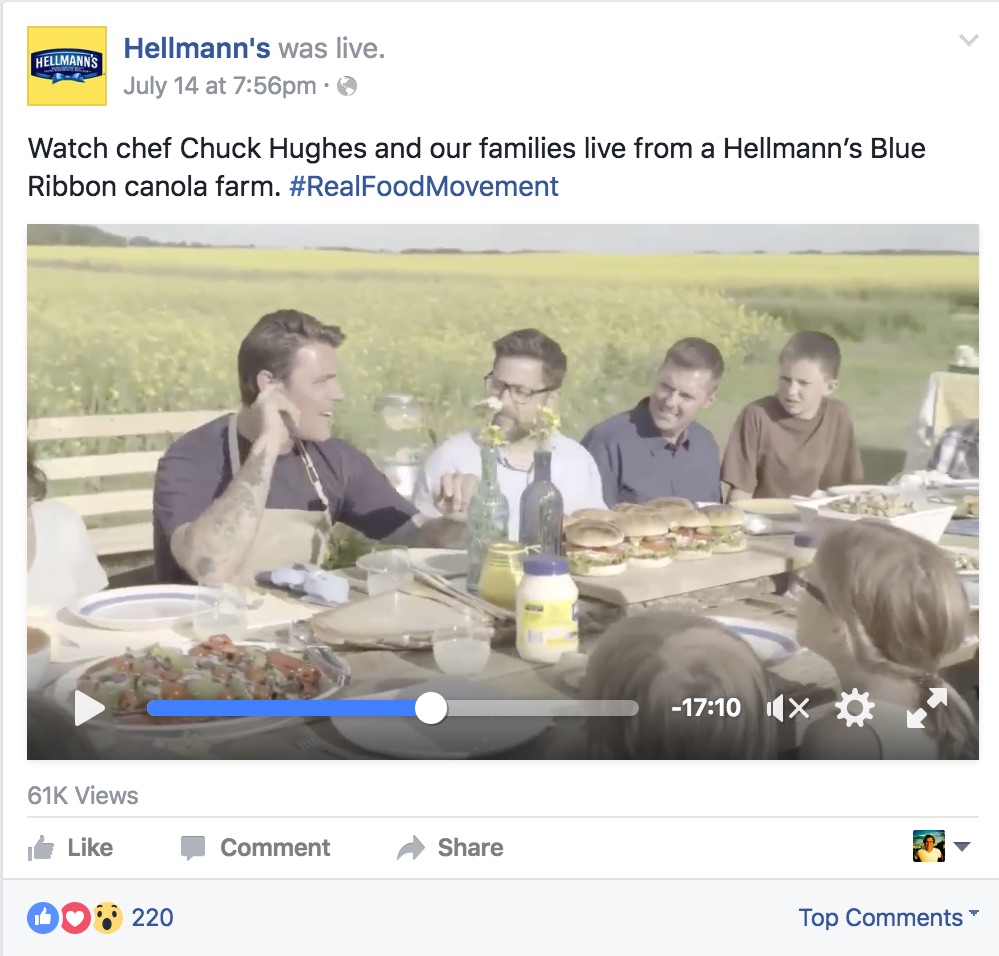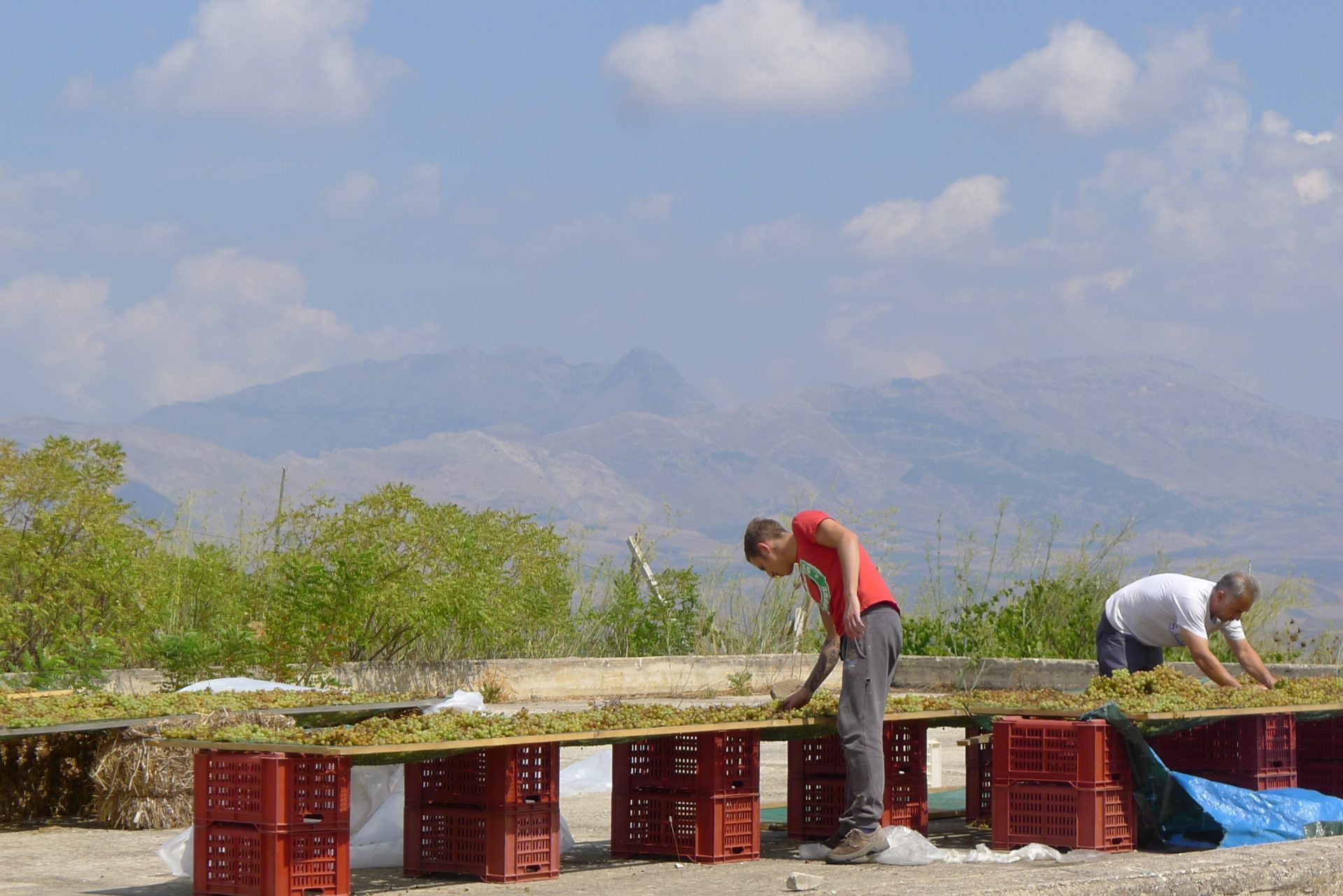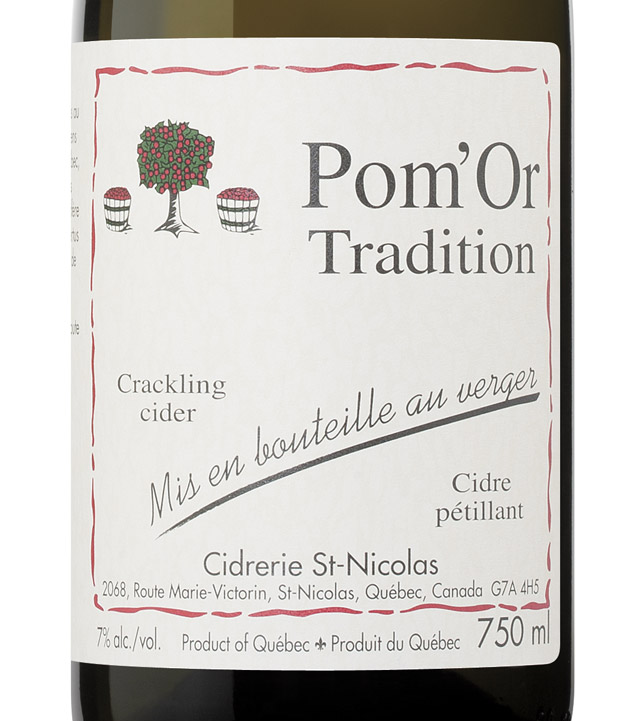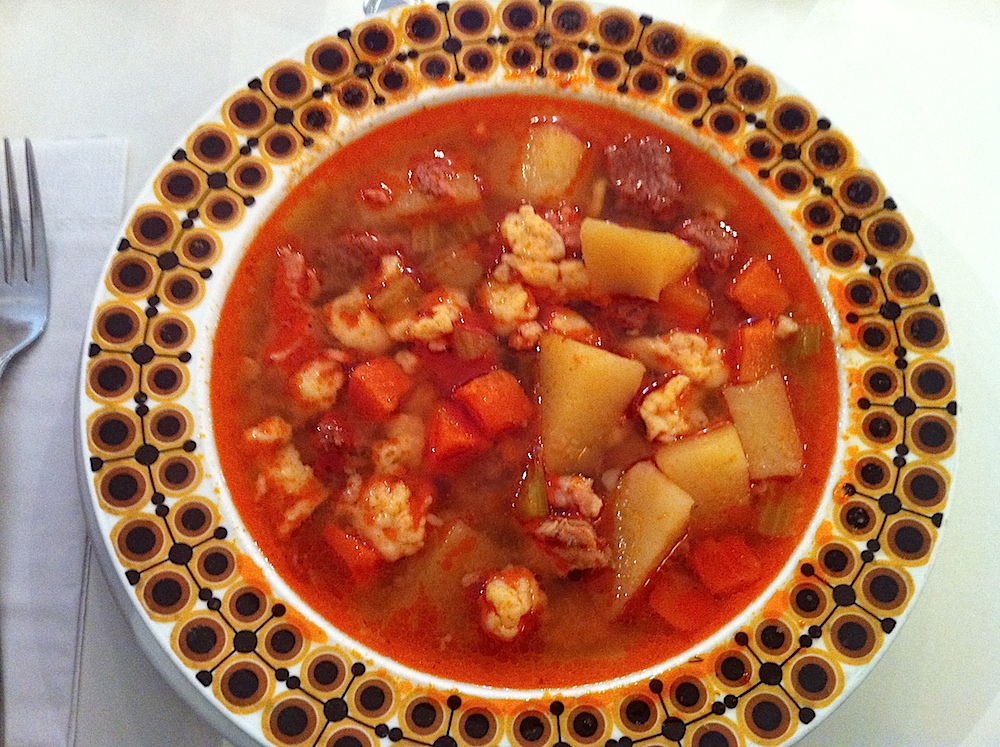Chuck Hughes lends his name to a program to show Canadians where their food comes from.
Montreal chef, resterateur, cookbook author and broadcaster Chuck Hughes was in town this week to promote his latest collaboration with Hellmann’s mayonnaise. It’s called The Real Food Movement and is centered around the company’s Facebook Page, where Hughes participates in videos of Canadian families meeting the farmers that supply some of the ingredients that goes into Hellmann’s mayonnaise. He also contributes recipes and tips.
I caught up with him by Skype to do the quick interview below. I was curious about the project; Hellmann’s Canada has been employing serious, but also telegenic, chefs like Hughes and Lynn Crawford over the years to draw attention to initiatives that are unusual for a large company (Hellmann’s is a brand of multinational giant Unilever). I wanted to see how Hellmann’s framed its foray into locavorism.
This interview has been edited for length, clarity and style.
Good Food Revolution: I thought this is an interesting project, this Real Food Movement initiative. How did you get involved?
Chuck Hughes: I’ve been working with Hellmann’s for a few years now, mostly on the Real Food Movement. This year we’re really focusing on connecting Canadian families with real food. And getting them to know where real food comes from. Something like four out of ten Canadians have no idea where their food comes from. As a parent, and as a chef, I guess I have a better connection, but still I’m in a kitchen, I’m in a restaurant, I’m in a city… sure, I’m connected but it’s not like I’m on the farm. So this year what we did is we took a trip with some kids and Canadian families and we took a trip to a canola farm in Saskatchewan last week. It was a Hellmann’s Blue Ribbon Farm. We learned about canola, about seeds and growing it and how canola oil is made. It was a lot of stuff that I kinds knew at the back of my head, but didn’t really know 100%. It was really interesting. I think the kids had an amazing time; I had a great time but I also learned a lot. So it was about making that connection and then living a better, more sustainable, healthy life. You know what I mean? If we can change a little bit how families make those decisions when they get to the grocery store, or hopefully a farmer’s market, and make that connection even stronger: especially with kids. So that’s basically what we’ve been doing!
GFR: I think Hellmann’s is interesting because it’s big brand made by a really big company. In my world they should be horrible villains doing terrible things, but over the last few years (maybe 10?) they seem to be trying to behave a bit like a smaller company, or a craft producer.
CH: They’re taking steps in the right direction, and I think that’s the most important thing. They’re promoting sustainability as such as they can, like with the eggs that they choose. [Hellmann’s Canada has pledged to use only free-run chicken eggs by 2020.] There are basically three ingredients, which makes it kind of simple. What we’re trying to do this year is connect people with real food, and I think Hellmann’s is the perfect vehicle for real food. You add a lit bit here, put in a little bit there, but the most important thing is the choices you make on the food that you’re buying. You know, for a farmer to be sustainable is one thing. For a chef in a restaurant to be sustainable is something else. And for a person at home it means something completely different. For a Canadian family to say, ‘OK, we’re going to use less running water, we’re going to choose ingredients that are more sustainable and in season, and try and connect with farmers at the local markets,’ is going to mean they ultimately make better decisions when they get to the grocery store. So, maybe that choice is Hellmann’s because they’re making a step in the right direction in terms of using farms that are more sustainable and working towards that. The Blue Ribbon Farms are all these Canadian farms that are going above and beyond the regular practices and trying to push that forward. What I know is cooking, and now I am a father. People used to ask me ‘What do you feed a kid that doesn’t want to eat?’, and I used to say, ‘I don’t care!’ You know what I mean [laughs]? I’d be like, ‘I don’t have kids – it’s not my problem yet!’ But now, it’s definitely part of what I do. I thought that because I was in the food business my kids would just eat well. But no, kids are kids, and I have to sneak in vegetables. So this whole thing has become even more real for me now that I’m not just taking about it, I am actually living it. I see how parents have a lot of choices to make, and the wallet factor is a big one. So, if we can inspire Canadians to make some positive changes, even if it’s only one a week, like focusing on local farms at the market, that’s great.
GFR: And if you have a jar of mayonnaise in your fridge, then at least that means you’re making a sandwich. You’re actually making food and in control of what you eat.
CH: Exactly.
GFR: Of course there’s nothing wrong with making your own mayonnaise, but that’s not going to happen every day, is it?
CH: I live in a world where I have two restaurants, but when I get home I don’t make my own mayonnaise. I don’t know many people who do, and everybody’s go to is Hellmann’s. You know, I am staying in a very nice hotel here in Toronto. I ordered a burger, because that’s what you do when you’re staying in a hotel obviously. The mayonnaise that came with my fries was Hellmann’s mayonnaise. It’s a brand that been around for a long time that’s recognized for its quality. And even for all of us chefs, once we get home, we’re kings of making sandwiches for our late night meals. We’re reaching for our jar of mayonnaise.

